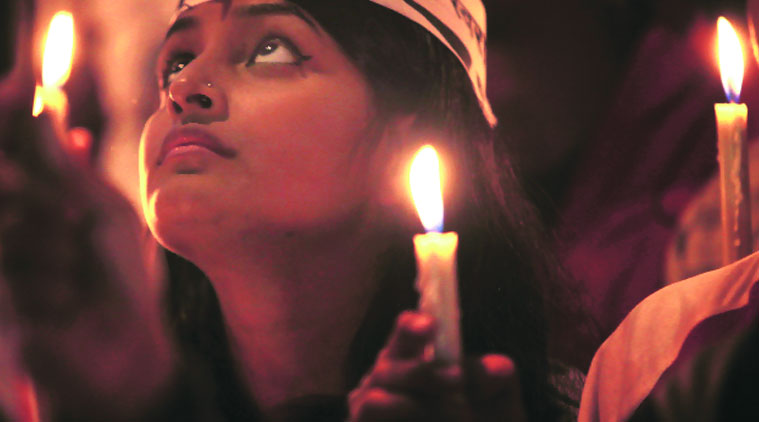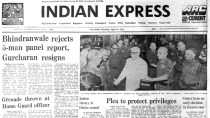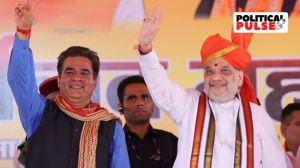- India
- International
Breaking mis-news
Without knowing it, we have learned to live in a daily crossfire of the ridiculous and the absurd.
 Protestors hold candle light vigil in New Delhi after the December 16 gangrape.
Protestors hold candle light vigil in New Delhi after the December 16 gangrape.Without knowing it, we have learned to live in a daily crossfire of the ridiculous and the absurd: bans on movies, on books, on beef; displays of legislators tossing microphones or biting opposition members; debates on security audits on politicians; virulent campaigns against VIP culture. The absence of satire makes us view these events in utter seriousness. It becomes hard to see them as the sad quirks of a place burdened by too much dead weight, by the unbearable heaviness of being. Their hyper-reality in the media, the monumental misreadings attached to even the most banal and trifling of public acts, lift these actions into caricature, where ideally they should die a natural death. But they don’t.
In an urban culture seeking daily relevance, the deliberate perversion of events makes monuments out of trivialities, and trivialises the real tragedies. Despite the daily quantum of human suffering — farmer suicides, female foeticides, tribal displacements, rapes and malnutrition deaths — public convergence occurs in different forms. The merits of Leslee Udwin’s documentary, India’s Daughter, aside, the film will be ridiculed for inane nationalistic reasons.Why must a foreigner make such a film; how did she get access to inmates at Tihar jail when Indian filmmakers couldn’t? Marginal ideas take centre stage. That Gandhi never endorsed a ban on cow slaughter but spoke of vegetarianism on moral grounds is misused to create new alignments. Respecting the religious sentiments of the majority can be legislated on and made into law without any clear rationale based on science, nutrition or culture. Is there a difference between religious sentiment and secular sentiment? Who should be asking the question?
[related-post]
If the nation’s daily debates are rooted in inconsequential positions, the problem lies in the public view of the power game itself. Everyone must have an opinion on everything, everyone must agree to disagree. Media visibility only imparts an added sense of purpose to the misrepresentation. Even in the most private moments, the cameras must be rolling. If Delhi Chief Minister Arvind Kejriwal is not in his seat at the assembly, he can be shown wrapped in a towel, doing jal neti in the secluded privacy of an ayurvedic spa. The TV crew must follow his every move, disclose his falling sugar levels, his current blood pressure. Banalities leave the viewer and reader in a breathless haze of statistical trivia.
The daily dose of such mis-news only signifies a growing relationship between corrupting influence and corrupted conscience. The politician merely employs the media as a storyboard for his own confused picture of India. Tainted by the incoherence, the media demonstrates its mistrust, even disdain, of serious reality. The hour by hour television rescue of a child who had fallen into a well is a sign of the times — a collusion of irrelevant ideas and claims, and the disbelieving public as mute spectators. The daily show must go on.
Of course, when people are ready to believe what they are told or what they read, public gullibility is at its highest. So when, on a routine security audit by the police, Rahul Gandhi is asked to state his age and the name of his mother for the record, angry sides quickly form. Is the outrage over the inquisition of a politician as senior as the Congress vice president, or over the humiliation of a trivial inquiry when the answer is already known to the public? It doesn’t matter. What matters is the need to be regularly outraged.

While every such action reveals the petty vein in which the country operates on a daily basis, it also reveals the larger vacuum of ideas. The corrupt bureaucrat, the idiotic MLA throwing microphones, the sleazy MP viewing pornography in Parliament, the minister describing “dusky” southern women — their pervasive influence on our daily life becomes a continual background noise. Even “ghar wapsi”, the banning of beef in Maharashtra, the proscriptions on documentaries and books are all the deeper, insidious calculations of a rule that refuses to define the larger motive inherent in these minor moves. Efforts at separation and exclusion, essential for some future religious or ethnic purity, come cloaked in the shallow mask of secularism.
Intolerance and daily bigotry is a convenient cover for a lack of vision and before anyone guesses it, to embroil the masses in a conundrum of petty rivalries and insignificant debates. The country operates at the level of the local RWA, pleasing the residents with a new street light but ensuring that the colony gates are firmly shut to the larger outside world. Without accountability or ambition or achievement, the mere act of maintaining a place in the public eye becomes responsibility, even achievement. When the actors and the audience are one and the same, the equation hardly matters.
Bhatia is a Delhi-based architect and writer
EXPRESS OPINION
More Explained
Apr 26: Latest News
- 01
- 02
- 03
- 04
- 05










































